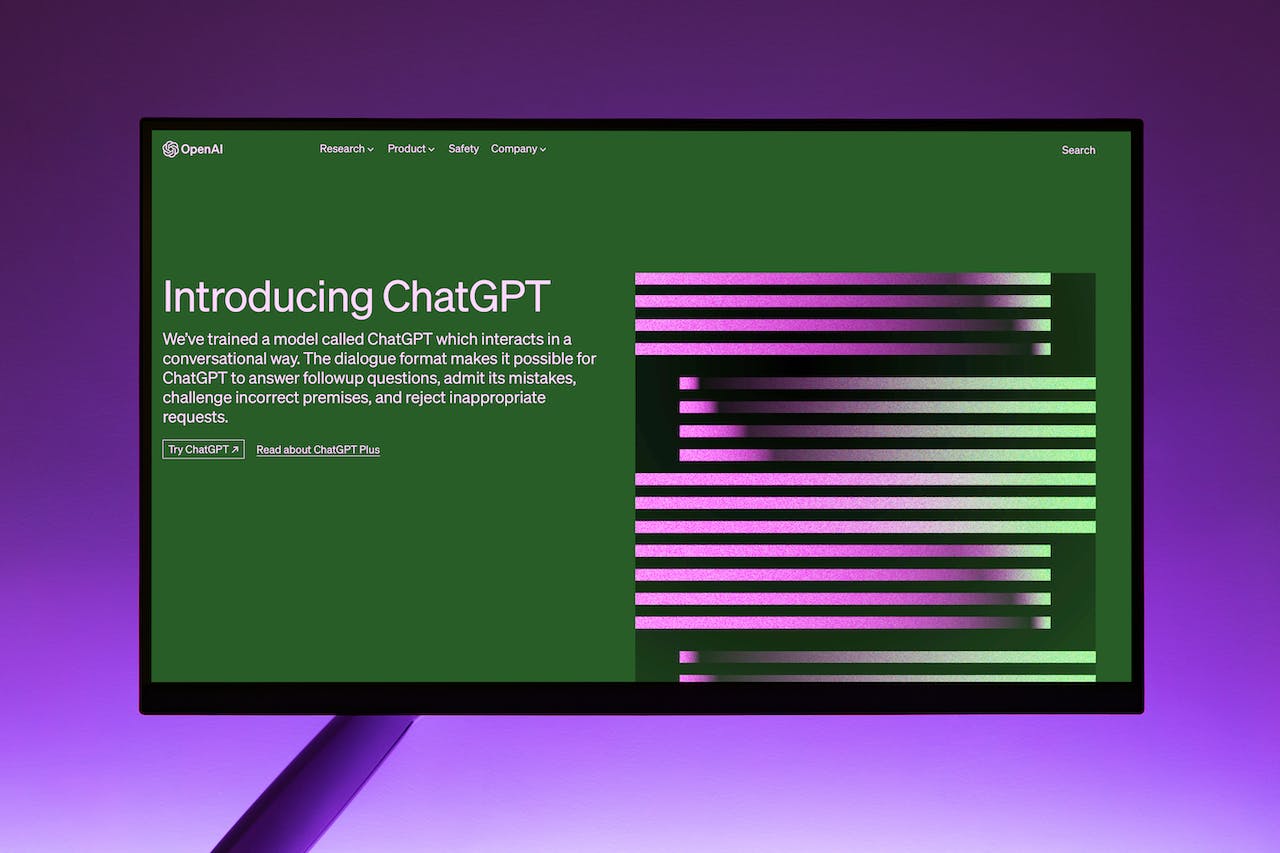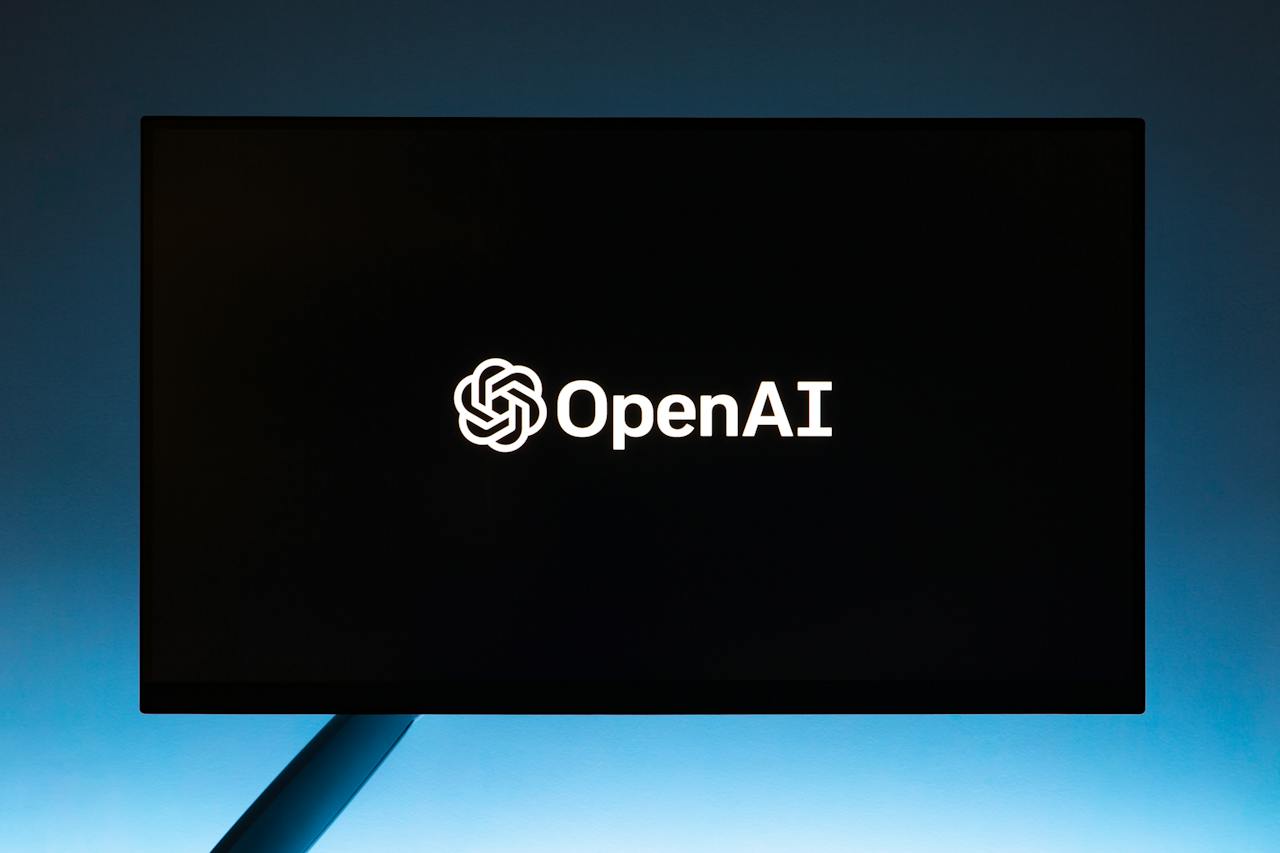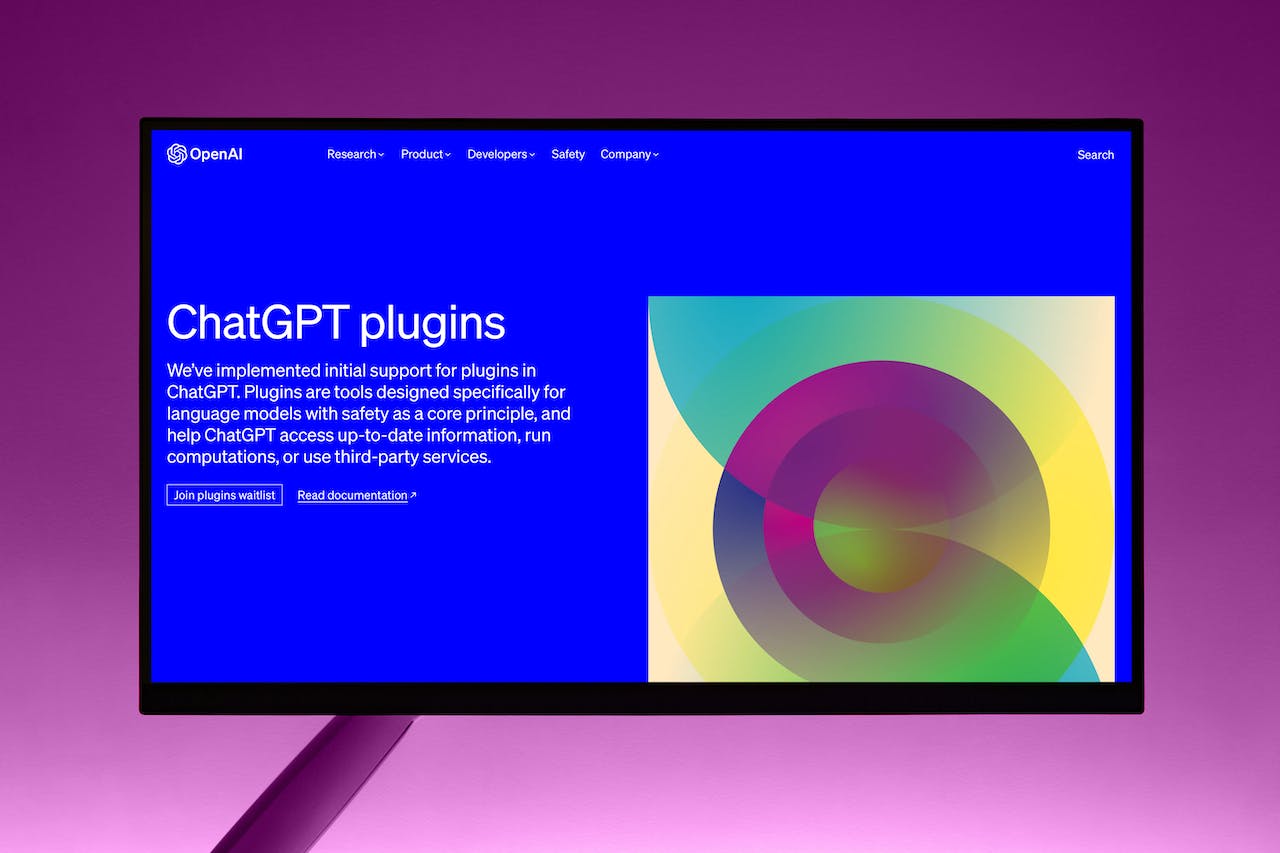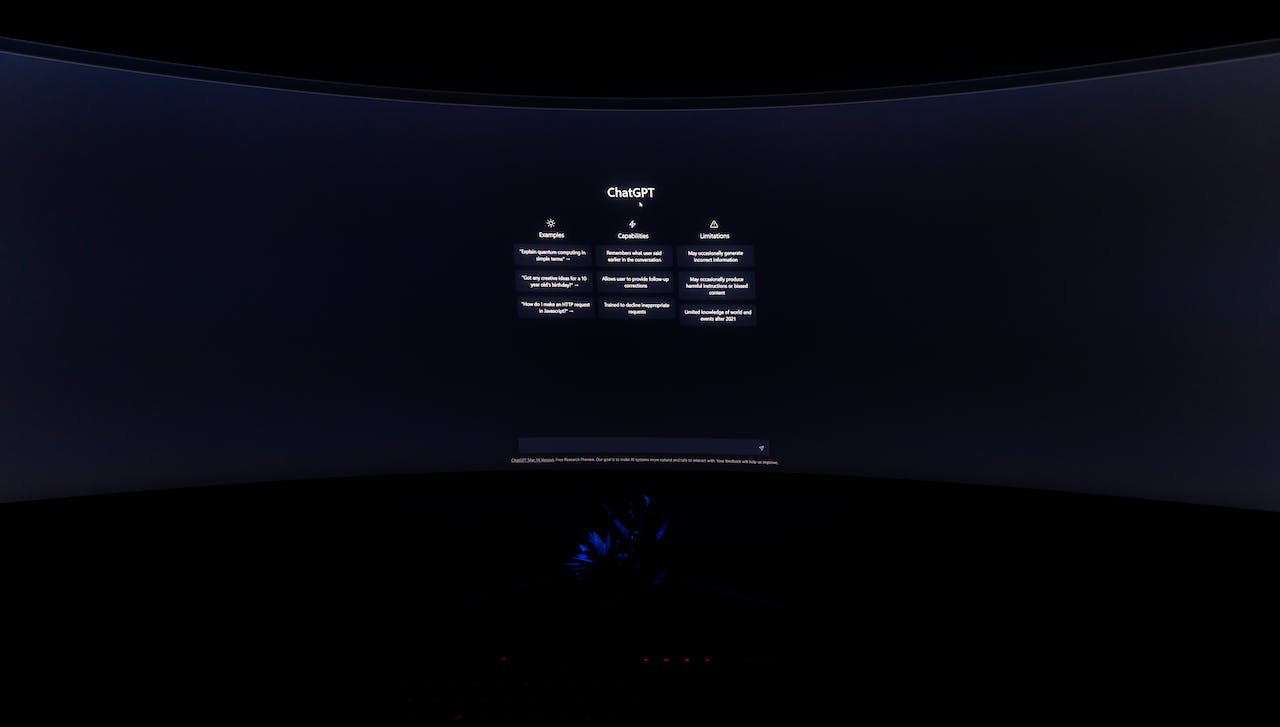Will ChatGPT Replace Google?
ChatGPT is an advanced language model that offers a range of capabilities, but it is not designed to replace Google. We'll be delving thoroughly into the topic of whether Will ChatGPT replace Google in this post.

Thomas Mitchell
Nov 24, 2023
The world first learned about ChatGPT around the end of November 2022. It is an intuitive user interface that makes it simple for people to utilize OpenAI's technologies.
Over the next few weeks, humorous anecdotes and astute professional applications poured in, but so were rushed decisions devoid of any depth or potential debate. One of these announcements was the replacement of Google by ChatGPT.
Regarding their personal and professional use, everyone has their perspective. Still, history has taught us that when a significant shift in the everyday lives of the general public is anticipated, people tend to become more enthusiastic than critical.
Currently, ChatGPT boasts over 100 million members and receives close to 1.5 billion monthly visits.
Can ChatGPT perform the tasks of a search engine such as Google, therefore taking its position in the daily lives of the general public? Is it reasonable to anticipate using ChatGPT in our media plans to connect with our target audiences? We'll be delving thoroughly into the topic of Will ChatGPT replace Googlein this post.
Primary Difference Between Google And Chatgpt
ChatGPT, which stands for "Generative Pre-Trained Transformer," is an artificial intelligence chatbot that engages in conversation in a manner that is identical to that of a natural person. The GPT-3.5 big language model, which makes use of natural language processing and is trained using human input, serves as the foundation for this system.
It has been trained to guess the next word in a succession of words or phrases by analyzing more than 570 terabytes of textual data and being given the opportunity to practice this skill.
On November 30, 2022, OpenAI presented the prototype version of ChatGPT to the public. At this time, the research preview version of the chatbot is available to everyone and everyone to use at no cost whatsoever.
On the other hand, Google is currently the most popular internet search engine and has a significant portion of the market share. When it comes to searching for websites and information on the internet, nine out of ten internet users prefer to utilize Google.
It is the property of Google LLC, which is, in turn, owned by Alphabet Inc., the parent corporation. According to Google, its index is about 100,000,000 terabytes in size and comprises hundreds of billions of web pages on the internet.
The business also announced its groundbreaking discussion technology, known as Google LaMDA, in 2021. They refer to themselves as an "AI-first" company. In the future years, it is also anticipated that Google will significantly increase its focus on AI and NLP.
How Does Chatgpt Work?
A probabilistic language model called ChatGPT is made to obey commands. To carry out the instructions as precisely as feasible, it has been trained using a particular collection of textual data. To achieve this, it creates tokens, which are word and character sequences based on probability distribution.
In short, artificial intelligence builds word strings consisting of the most likely terms by analyzing word order statistics and sequentiality. The ability to define the "temperature" parameter is a feature that is not yet available in ChatGPT but will be available in its Bing iteration or the OpenAI Playground source model. Users may choose how far the model can stray from the knowledge it has gained from its dataset using this feature.
In actual use, the temperature parameter indicates whether or not the highest probability level should be assigned to the tokens (words). This significantly impacts the outcome.
Should you choose to use only the most likely terms, the result will be highly schematic, repetitious, and flat. You will obtain an output that is more fascinating and adaptable after you permit the usage of lower-ranking, more random tokens.
Limitations Of Google's Search Engine
Despite holding a commanding lead in the search engine industry, Google is constrained in a number of ways that impact how people find and utilize information.
In light of the rapidly changing digital ecosystem and the emergence of AI-driven technologies such as ChatGPT, it is imperative to comprehend these limits.
Dependence On Specific Keywords And Phrases
Google's search engine is severely limited by its strong dependence on user-inputted keywords and phrases. Although this technique works well in many situations, it frequently necessitates that users know exactly what they're looking for.
The search results might be less helpful or relevant when users employ imprecise phrases or need clarification about specific keywords. This restriction may make using the site difficult, particularly if you're looking for intricate or subtle information.
Potential For Biased And Filtered Results
Potentially skewed results are a severe problem with Google's search algorithm. Google's algorithm, which takes into account geography, past search history, and personal information, has the potential to produce a "filter bubble."
Due to the bubble's tendency to prioritize identical material over differing ideas, users' preexisting thoughts and opinions are frequently reinforced. Users may thus not receive a complete picture of a subject, which restricts their access to a wide variety of data and viewpoints.
How ChatGPT Addresses Google's Limitations?
As an AI-powered conversational model, ChatGPT provides creative answers to some of these restrictions. In contrast to Google, which is dependent on specific terms, ChatGPT is able to comprehend and react to natural language inquiries.
With this feature, users may ask conversational inquiries without worrying about the precise wording or syntax. More precise and pertinent answers can result from ChatGPT's capacity to understand the context and aim of a user's inquiry, mainly when the user's question is complex or ambiguous.
Furthermore, the architecture of ChatGPT strives to reduce the influence of individual biases that frequently affect search results. Although there is always some bias in any system, ChatGPT uses a variety of datasets in its training in an effort to provide replies that are more varied and balanced.
This strategy can provide consumers with a greater variety of viewpoints and information while also assisting in breaking the "filter bubble" effect.
Although Google's search engine has transformed information access, its drawbacks, such as its dependence on specific terms and the possibility of skewed results, highlight the necessity for alternate strategies. With its conversational AI features, ChatGPT presents a viable path.
ChatGPT has the potential to overcome some of the intrinsic drawbacks of conventional search engines like Google by offering more natural interactions and striving for balanced content distribution. This might open the door to a more complex and user-friendly digital information landscape.
What Can We Use Chatgpt For?
The modern language model ChatGPT, created by OpenAI, has emerged as a significant force in the artificial intelligence space. It is a valuable tool in many different fields due to its adaptability and sophisticated capabilities, which have opened up a wide range of applications.
Content Creation And Writing Assistance
The generation of content and writing support is one of the most common applications for ChatGPT. For content producers, authors, and marketers, the model is a priceless tool because of its capacity to comprehend and produce human-like language.
Drafting articles, blogs, reports, and even creative writing projects like poetry or stories can be aided with ChatGPT. Its ability to produce logical, contextually appropriate content makes it an excellent tool for idea generation, writing drafts, and even offering editing advice.
Customer Support And Chatbots
ChatGPT is perfect for improving customer support systems because of its conversational capabilities. Companies are incorporating ChatGPT more and more into their customer support processes in order to give their customers prompt, practical, round-the-clock assistance.
The AI can assist with a wide variety of questions, from straightforward FAQs to more intricate troubleshooting, giving consumers a smooth and engaging support experience. Businesses may increase customer satisfaction and lessen the strain on their human support staff by automating these exchanges.
Language Translation And Learning
Due to its multilingualism, ChatGPT is a valuable resource for language learning and translation. It can translate text between several languages, making it a valuable tool for linguists, foreign travelers, and enterprises.
Additionally, language learners may communicate with ChatGPT in the language they are learning, taking advantage of its immersive language practice and corrective feedback.
Writing Code And Programming
Developers and programmers may find ChatGPT to be a revolutionary tool. It helps with debugging, producing code, and even learning new programming ideas because of its capacity to comprehend and produce code snippets in a variety of programming languages.
ChatGPT is an invaluable tool for both inexperienced and seasoned programmers since it can explain code, provide suggestions for enhancements, and assist in troubleshooting programming problems.
Personal Assistant And Lifestyle Management
As a personal assistant, ChatGPT may aid users in organizing and managing their daily plans and responsibilities. It can make notes, compose emails, schedule travel, and even offer guidance on private issues. Because ChatGPT is conversational, using it is like conversing with a real assistant, which increases the accessibility and fun factor of task management.
ChatGPT has a wide range of applications that are constantly changing. Because of its sophisticated natural language processing powers, it's a flexible tool that may be used for a wide range of tasks, including customer service, teaching, and content production.
The potential applications of ChatGPT will undoubtedly grow as AI technology develops, further incorporating AI into our daily lives and jobs and creating new avenues for technological interaction.
Is Chatgpt A Search Engine?
To put it simply, no. It is different from a search engine that you have used. OpenAI's online AI language model is known as ChatGPT, and the business developed it.
It is not the case that the model will retrieve results from the internet in response to a question or a request that is posed to it. Instead, it generates a response by employing its data in conjunction with natural language processing methodologies.
Chatgpt Vs. Google - What Are The Key Differences?
Google Search Engine and ChatGPT are two digital tools that are very useful and serve different functions. Utilizing Google's robust search engine, users may explore the internet with ease and benefit from a fast, accurate, and relevant search experience.
Google uses sophisticated algorithms to actively scan the whole web and retrieve material, producing incredibly high-quality search results. In the meantime, ChatGPT has been painstakingly designed to provide conversational support. It uses cutting-edge artificial intelligence (AI) and natural language processing to understand and respond to questions in plain English.
While ChatGPT facilitates dynamic, human-like communication, Google offers a more conventional search box in terms of interaction techniques and interfaces. While both systems manage user data differently, they both use customization capabilities to customize results.
Google gathers data from several sources to remain up to date, while ChatGPT's knowledge base is large but contains only data until 2021. While always working to improve the constantly changing environment of information distribution and user experience, these two platforms are quite different in that they place a high value on user feedback:
Functionality Of Search
With the help of complex algorithms and ranking systems, the Google Search Engine efficiently searches the vast expanse of the internet for content relevant to user queries. It does this by cataloging and indexing a variety of search categories, including web pages, images, videos, and other digital content.
With the use of state-of-the-art artificial intelligence and natural language processing methods, ChatGPT can understand questions and provide appropriate conversational replies. Its primary goals are to provide conversational help and natural language answers to inquiries.
User Experience
Users must type a query into Google to start a search, then navigate through the results and choose information from Google. ChatGPT provides real-time communication and prompt replies while interacting with people using conversational formats and natural language.
When it comes to customized user experiences, the Google Search Engine provides results that are based on a user's browsing history, location, and other factors. In a similar vein, ChatGPT provides users with customized responses based on their past conversations and preferences.
Relevance And Accuracy
Google uses sophisticated algorithms to determine whether search results are relevant to the user's query. ChatGPT understands user inquiries and provides relevant answers by using advanced AI and NLP algorithms.
They both leverage cutting-edge AI and NLP technology to provide consumers with accurate, up-to-date information. That being said, ChatGPT might only sometimes have complete, current, or reliable data.
Response Time
With millions of pages indexed and search results generated in milliseconds, the Google search engine provides efficient and timely search results. In a similar vein, ChatGPT quickly processes queries and responds to users' inquiries in real-time.
Personalization And User Data
In order to provide personalized search results and relevant ads, Google's search engine collects and retains user information, including search history and geolocation data.
In a similar vein, ChatGPT gathers and stores user data in order to provide customized responses and improve the accuracy of its artificial intelligence and natural language processing.
Data Sources And Accuracy
When it comes to information retrieval, ChatGPT and Google Search both provide different degrees of precision in responding to user inquiries. While Google Search is excellent at indexing billions of pages to provide a wide range of results, ChatGPT does its magic by interpreting user input contextually and providing pertinent answers.
Google's search accuracy is usually dependent on well-known algorithms that take popularity and credibility into account. In contrast, ChatGPT's accuracy is based on sophisticated semantic understanding and large amounts of training data.
Though ChatGPT's dataset could only contain data from 2021, Google constantly refreshes its index and uses bots to search for new content. Even if both have improved in providing consumers with the appropriate answers, it's essential to recognize their distinct approaches, advantages, and sporadic shortcomings.
Are Internet Users Willing To Replace Google With Chatgpt?
Only a fraction of a search engine's service can be subject to competition. Transactional questions are outside the purview of ChatGPT and are only appropriately handled for informative requests. Because of this, ChatGPT can only handle a very tiny portion of inquiries in comparison to how Google is now used.
Even though ChatGPT's response was thought to be of high quality, people are accustomed to searching websites for information and receiving precise responses rather than ambiguous paraphrases and the option to "Regenerate response." They have comfortable settings with a thoughtful user experience.
Over the past ten years, a profusion of alternative search engines has emerged, each with unique features (confidentiality, worldwide searches, demagogy, meta-engines, etc.). Still, none have survived the public's verdict. All have yet to be able to take over 1% of the market share, with the exception of Bing, which is frequently used as the default search engine on computers.
Internet users, of course, are the ones who determine whether or not the legitimacy of a dominating actor should be questioned by their usage, notwithstanding the lofty intentions to end the web giants’ monopoly by redesigning the search engine paradigm.
Will Chatgpt Replace Google - FAQs
Is ChatGPT Compatible With Search Engines?
Your best option is to use a search engine to find current, reliable information. Information searches on the internet are not possible with ChatGPT's free edition.
How Much Of The Internet Does ChatGPT Know?
ChatGPT is not connected to the internet, and it may occasionally generate incorrect answers.
Will ChatGPT Make Google Obsolete?
When ChatGPT became popular, a lot of individuals were prepared to declare Google's demise. However, this is far too soon. Alphabet is at peril because of the method that we are searching these days.
To Sum-Up
Everyone has read about the virtues of ChatGPT, an open artificial intelligence platform. While it is true that it is enhancing many aspects of organizations across a range of sectors, they may be getting ahead of themselves in asking for an answer to the question of will ChatGPT replace Google
ChatGPT cannot replace Google Search despite its remarkable potential as a language model that can produce writing that resembles that of a person. Google Search is built to effectively search and retrieve large volumes of online content, while ChatGPT is primarily concerned with producing well-reasoned replies by using previously collected training data.
Because Google Search takes into account a wider variety of characteristics, such as popularity and relevance, and supports a more extensive range of data types, including photographs, videos, news, and maps, than ChatGPT does at the moment, its robust algorithms yield more objective and accurate results.
While ChatGPT is helpful for creating text content and answering questions, it needs to be more broad and technically capable enough to replace Google Search completely.




